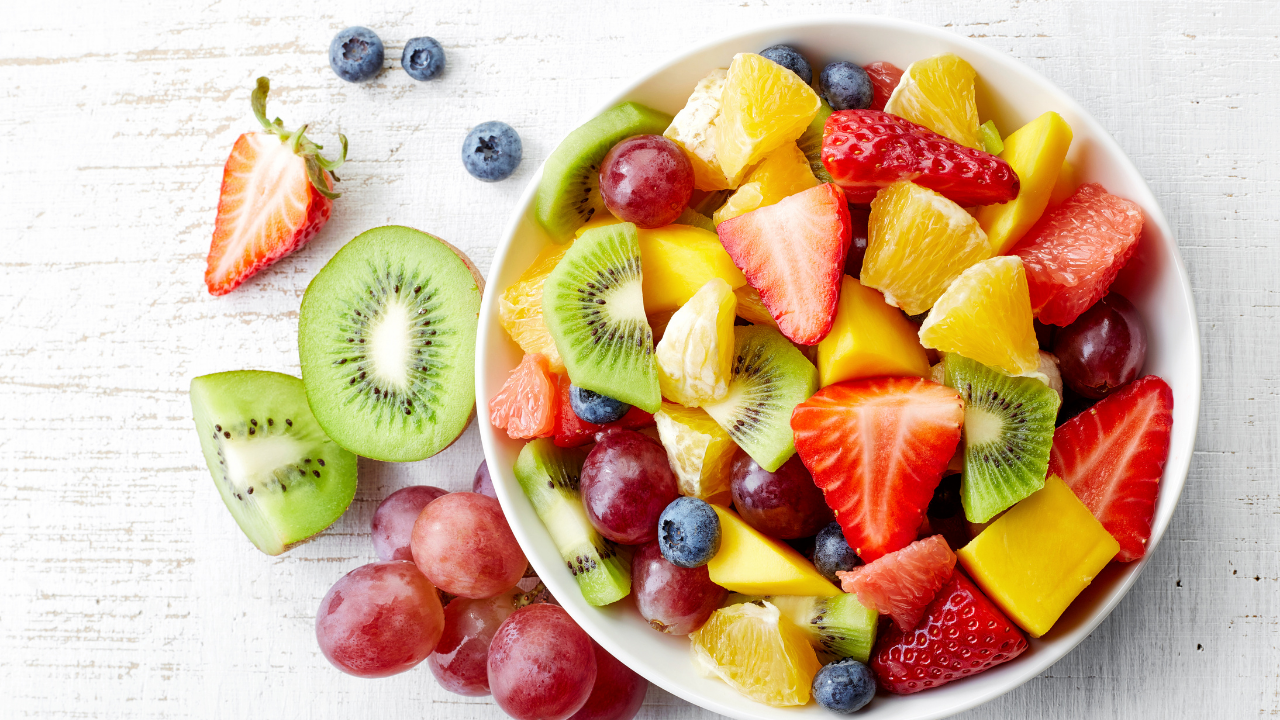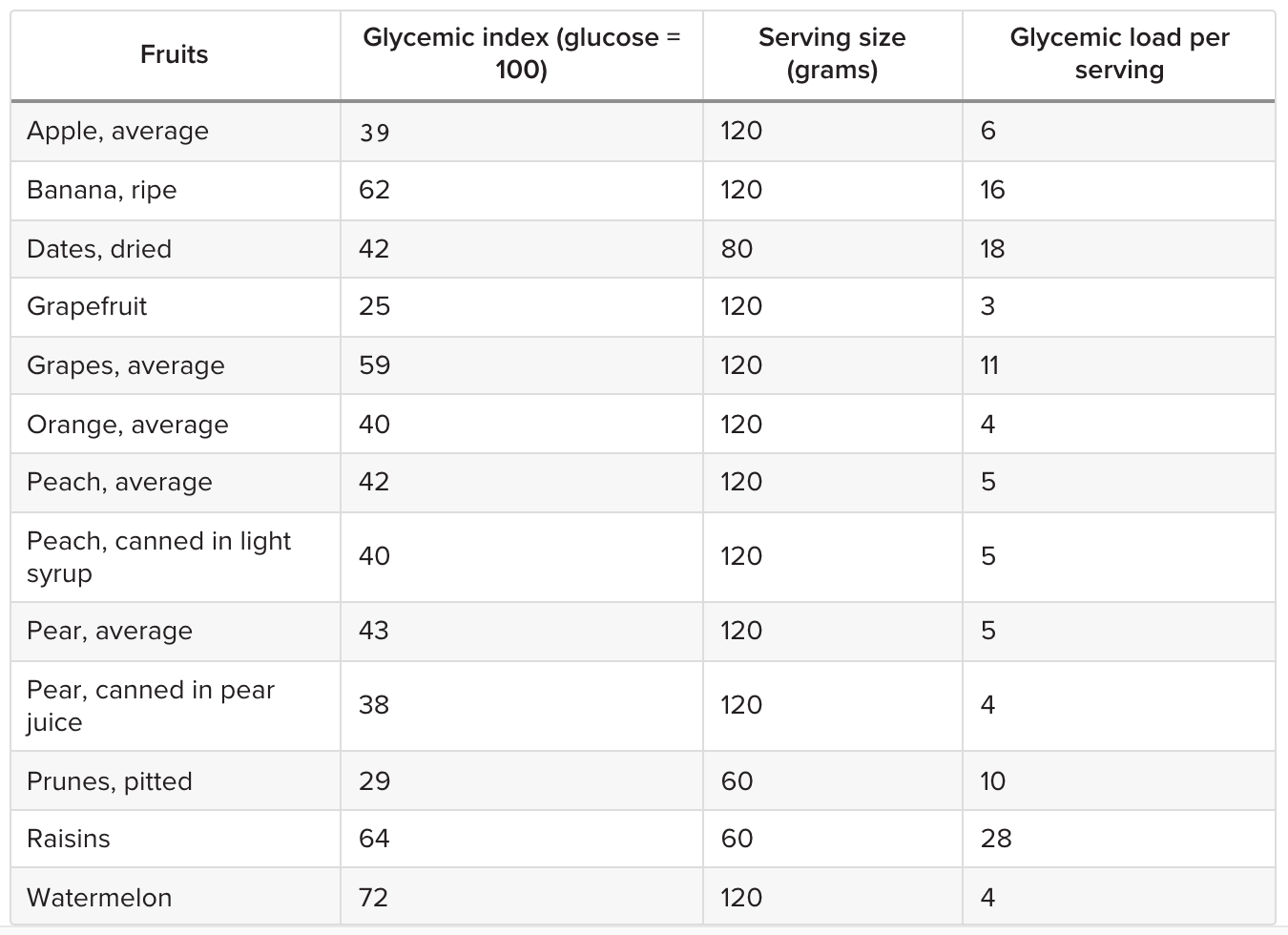Episode 117: Does Fruit Make You Fat? Science Says...

Listen In
Summary
I can't count how many times in my career I've uttered the words, "No one is fat because of eating bananas."
I actually remember the first time I said it.
I had a client who ate virtually every meal out, who regularly drank 4-5 artificially sweetened ice teas at one sitting, and who was just getting into a workout routine.
They had a solid 60 pounds to lose and when I told them to eat a banana to fuel their workout their response was, "Don't bananas have a lot of sugar??"
Honestly, it hurt my heart to hear that fear about eating fruit because I knew they weren't the only one. And that was before the keto craze!
And while I wish the common sense of it would sink in that of course low-calorie, high-fiber, clean-carb-filled fruit is not the weight loss villain everyone seems to think it is, I understand that in the face of BS, warped studies designed to prove otherwise, we need some concrete evidence of why fruit is not the culprit of the obesity epidemic in this country.
So here we go, proving once and for all that fruit fear is not only unfounded, it's actually detrimental to our weight loss efforts and long term health.
Let's Talk Fructose
For a lot of fruit-fearers, fructose is the villain they site for why they avoid this food group. But most of the fructose we get isn't from fresh fruit, it's from high fructose corn syrup (found in sweetened beverages and virtually all processed foods) and sucrose (table sugar).
"As the consumption of HFCS has risen, so has the epidemic of obesity. This has led many to believe there is an association between the two. Indeed, food intake surveys have indicated that the average person consumes about 79 grams of added sugars each day (~316 calories or 15% of caloric intake), half of these 79g being in the form of fructose." -Precision Nutrition
Fructose is metabolized in the liver where it's converted to glycogen - this is great if you live an active lifestyle because that glycogen is used as energy to help your muscles contract during movement.
However, if you live a sedentary life, don't utilize the glycogen for energy, and eat very high doses of fructose, yes that glycogen can then be converted into triglycerides (with the help of insulin) which can be stored as fat.
But fructose actually does not stimulate a substantial release of insulin making it harder for you to convert fruit to fat unless you're combining it with another insulin-spiking food like processed carbs and sugars.
Now if you consume excessive amounts of fructose from things like high fructose corn syrup, it does fail to stimulate leptin (your satiety hormone), making you more likely to overeat due to never getting that full feeling. This is why it's so easy to overeat processed food and dessert.
But eating a whole food diet full of protein, fiber, and healthy fat, mitigates these effects entirely. So again, fruit is not the issue. Processed food with added sweeteners are.
The takeaway: fructose in excessively high amounts coming from processed foods and fruit juices can cause fat storage, disrupt fullness cues, and increase triglycerides.
However, the relatively small amount of fructose you would get from eating whole, unprocessed fruit is harmless.
But doesn't it have a high glycemic index??
The glycemic index gives food a score from 1-100 depending on how quickly it spikes blood sugar (with 100 being pure glucose, aka sugar).
But we can't rely on the glycemic index to make our food choices because it only shows part of the picture; it doesn't actually tell us how our body reacts to food in real life.
"What it doesn't tell you is how high your blood sugar could go when you actually eat the food. To understand a food's complete effect on blood sugar, you need to know both how quickly it makes glucose enter the bloodstream and how much glucose per serving it can deliver. A separate measure called the glycemic load does both — which gives you a more accurate picture of a food's real-life impact on your blood sugar. Watermelon, for example, has a high glycemic index (72). But a serving of watermelon has so little carbohydrate that its glycemic load is only 4." -Harvard Health Publishing
Not to mention, the glycemic index of food changes when foods are mixed together. For example, if you eat just a piece of bread on its own, your blood sugar will spike higher than if you ate it with protein, fat, and fiber containing foods.
Also, the more cooked a food the higher the glycemic index, the more fiber the lower the glycemic index, the more ripe the higher it is, the more processed the higher it is. Even your gut microbiome can influence how your body responds to different foods.
So the glycemic index is not a good indicator to rely on.
And just to put fruit into perspective comparing glycemic index to glycemic load:
What you're missing when you cut out fruit from your diet:
- Fruit is filled with water and fiber which leaves us feeling full and helps prevent overeating. One study even showed that eating an apple before a meal reduced food intake by 15%.
- The fiber in fruit also binds to cholesterol in the blood helping to carry it out of the body while also inhibiting the liver from producing cholesterol.
- The antioxidants found in fruit called flavonoids reduce oxidative stress and inflammation, and fight free radicals in the body helping prevent cancer, heart disease, signs of aging, Alzheimers, diabetes, and other diseases.
- The potassium, magnesium, and fiber found in fruit can help lower blood pressure.
- Studies show that eating certain fruits like plums can even help prevent osteoporosis.
- Eating a wide variety of plants (including fruit) is the most important habit you can implement to build a strong gut microbiome. The trillions of bacteria in your gut need as many different sources of fiber as possible. And when your gut microbiome is healthy and strong it impacts virtually every marker of health. It helps prevent disease, reduce inflammation, reduce cravings, improve energy, improve sleep, improve cognitive function, decrease depression and anxiety, and so much more.
So please oh please, if you know people who are terrified to eat fruit, share this episode with them. Help spread the word that the the enemy is not fruit, but processed, artificially sweetened frankenfoods.
------------------------------------
Let's Chat!
If you're loving these episodes, you'll love the customized advice you'll get on a free 'Kickstart Your Weight Loss' call with me! Click here to schedule yours now 😉
Hot News & Deals!
Click here to book a complimentary consultation if you want to lose weight and keep it off without restrictive dieting!
Can't get enough health and fitness inspo?
Follow me on Instagram, TikTok, or join my #badasswarrior tribe in my free Facebook group!
Want to be reminded when a new episode airs? Click here to subscribe for reminders!
Your daily discount!
Click here to get 15% off your first Fre Skincare Set! It's designed for skin that sweats.
The owner of this website may receive compensation for recommendations made in reference to the products or services on this website. This compensation may be in the form of money, services, or complimentary products and could exist without any action from a website visitor. Should you purchase a product or service that was recommended by this website, it is understood that some form of compensation might be made to the website owner. For example, if you click on an affiliate link at this website and then make a purchase of the recommended product or service, the website owner may receive compensation.
The information shared in this blog and podcast are intended for informational purposes only. They are not meant to diagnose, treat, or cure any health conditions and you should always consult your healthcare provider before making any changes to your diet or exercise routine.

